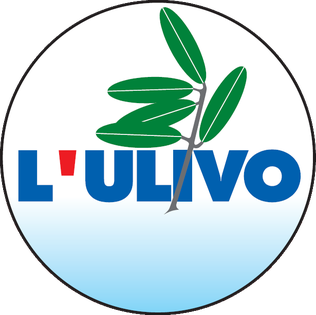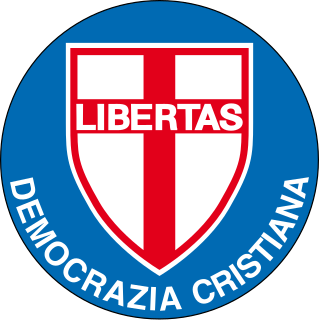This page is based on this
Wikipedia article Text is available under the
CC BY-SA 4.0 license; additional terms may apply.
Images, videos and audio are available under their respective licenses.

The politics of Italy are conducted through a parliamentary republic with a multi-party system. Italy has been a democratic republic since 2 June 1946, when the monarchy was abolished by popular referendum and a constituent assembly was elected to draft a constitution, which was promulgated on 1 January 1948.

Enrico Berlinguer was an Italian politician.
A one-party state, single-party state, one-party system, or single-party system is a type of state in which one political party has the right to form the government, usually based on the existing constitution. All other parties are either outlawed or allowed to take only a limited and controlled participation in elections. Sometimes the term de facto one-party state is used to describe a dominant-party system that, unlike the one-party state, allows democratic multiparty elections, but the existing practices or balance of political power effectively prevent the opposition from winning the elections.

The Olive Tree was a denomination used for several successive centre-left political and electoral alliances of Italian political parties from 1995 to 2007.
The Historic Compromise, called also Third Phase or Democratic Alternative, was an Italian historical political alliance and accommodation between the Christian Democrats (DC) and the Italian Communist Party (PCI) in the 1970s.

General elections were held in Italy on 3 June 1979, to select the Eighth Republican Parliament. This election was called just a week before the European vote: the failure to hold the two elections at the same time caused much criticism for wasting public money.

General elections were held in Italy on 14 June 1987, to select the Tenth Republican Parliament. This election marked the final inversion of the trend of the entire republican history of Italy: for the first time, the distance between the Christian Democrats and the Communists grew significantly instead of decreasing, and this fact was seen as the result of the deindustrialization of the country. The growth of the service sector of the economy, and the leadership of former PM Bettino Craxi, gave instead a new strength to the Socialists. A remarkable novelty was the rise of the new Green Lists, while a new party obtained its first two parliamentary seats: the Northern League.

Massimo D'Alema is an Italian politician who was the 53rd Prime Minister from 1998 to 2000. Later he was Deputy Prime Minister and Minister of Foreign Affairs from 2006 to 2008. He is also a journalist and served for a time as national secretary of the Democratic Party of the Left (PDS).
Sometimes media refers to him as Leader Maximo, due to his first name Massimo, but also for his dominant position in the left-wing coalitions during the Second Republic. Earlier in his career he was a member of the Italian Communist Party, and he was the first former communist to become prime minister of a NATO country and yet the only former communist prime minister of Italy.

The Piedmontese regional election of 1980 took place on 8 June 1980.

The Tuscan regional election of 1980 took place on 8 June 1980.

The Sardinian regional election of 1979 took place on 17 June 1979.

The Italian regional elections of 1980 were held on June 8. The fifteen ordinary regions, created in 1970, elected their third assemblies.

A referendum on abolishing the wage escalator was held in Italy on 9 June 1985. The escalator allowed for the automatic growth of the salaries of Italian workers at the same rate as inflation. This mechanism was accused of causing high inflation which damaged the lira during the 1980s, with a 20% annual rate. Voters were asked whether they wanted to repeal a law passed by the government of socialist Prime Minister Bettino Craxi which had strongly reduced this automatic mechanisms. The referendum was called by the Italian Communist Party. Those voting "yes" wanted to restore the automatic growth of the salaries as the inflation ratio, and those voting "no" wanted to retain the law which tried to reduce the high inflation.

Proletarian Democracy was a far-left political party in Italy.

The Communist Refoundation Party is a communist political party in Italy, emerged from a split of the Italian Communist Party (PCI) in 1991. The party's secretary is Maurizio Acerbo, who replaced Paolo Ferrero in 2017. Armando Cossutta was the party's founder, while Fausto Bertinotti its longest-serving leader (1994–2008). The latter transformed the PRC from a traditional communist party into a collector of radical social movements.
The centre-left coalition is a political alliance of political parties in Italy active, under several forms and names, since 1995 when The Olive Tree was formed under the leadership of Romano Prodi. The centre-left coalition ruled the country for more than twelve years between 1996 and 2018.

The 1980 Italian local elections were held on 8 June. In Italy, direct elections were held in 5,772 comuni: in each comune were chosen mayor and members of the City Council.

Filippo Bubbico is an Italian politician, President of Basilicata from 2000 to 2005.

















